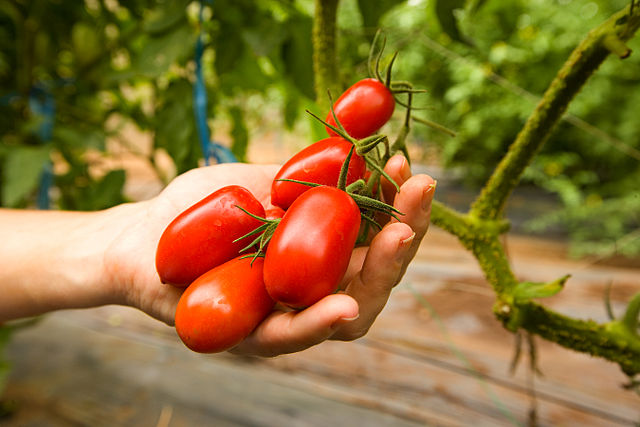Unlabelled Irradiated ‘fresh’ fruits and vegetables: False, Misleading and Deceptive


Fresh Tomatoes.
We have been advised that on January 18 FSANZ will release the “Consulatation Paper” in response to Blewitt Recommendation 43 for the “review” of mandatory labelling of irradiated foods. We expect that the public will have until mid-March to respond to this paper.
We hope that in the spirit of the words “consultation” and “review”, the discussion paper will present more than the industry-driven case for removing mandatory labelling requirements and include: 1) Maintaining the status quo (labelling requirements which we feel could be improved) and 2) Improving labelling (to include such things prescribed wording for irradiation labelling).
Our call for comprehensive labelling should in no way be taken as support for food irradiation. It is driven by the understanding that labelling is the only means by which a member of the public can be informed about irradiation and therefore must be in place as long as irradiation is legal, to ensure that the public can make informed decisions about what they eat.
Recent approvals for the irradiation of apples, apricots, cherries, nectarines, peaches, plums, honeydews, rockmelons, strawberries, table grapes and zucchini/squash. have significantly increased the proportion of irradiated foods in the average Australian and New Zealand diet, increasing the need for strong labelling laws. FSANZ is currently processing an application for the irradiation of blueberries and raspberries.
Below are some key reasons to keep irradiated foods labelled:
1. Despite their appearance, irradiated fruits and vegetables are processed, not fresh.
2. Without Labelling, irradiated fruit and vegetables would be implicitly misrepresented as fresh -products of the irradiation process are undetectable to consumers without labelling and consumers naturally expect such products to be labelled
3. Consumers have strong opinions on irradiated produce as it is a new technology with a limited history of safe use in the human food supply
4. Food producers have raised their own queries about the removal of labelling, as it will disadvantage non-irradiating producers
5. The irradiation of fruits and vegetables typically involves their exposure to the energy equivalent of between 1.5 and 10 million x-rays. When used as a fruit fly larvae treatment, food irradiation also extends shelf life, sanitises, and alters the nutritional value of the treated foods. The substantial and significant changes made to fruits and vegetables as a result of processing with irradiation cannot be discerned with our ordinary senses. Thus, consumers could no longer rely on taste, smell, texture or appearance to exercise their preference for fresh produce, if irradiation labelling were removed.
We therefore assert that the removal of labelling from irradiated fruits and vegetables will create a situation where the public will be led to false, misleading and deceptive conclusions as to the nature of these foods, also impacting on their right to make well-informed food buying decisions that potentially impact on their diet and health.
We will share the consultation paper and our analysis of it as soon as possible. Please get ready to let your state and federal health minister know that if food is going to be irradiated, it must be labelled!
– the Food Irradiation Watch team.
